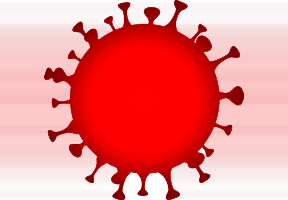Economy connected with Eid perished
Clutch of COVID-19
Golam Mostafa Jibon:Due to clutch of COVID-19 pandemic, the economy revolved with Eid-ul-Azha may fall at risk this year too like the last year as many people especially poor, middle income group and jobless are still lagging behind.
Experts seem that, the sale of sacrificial animals may be less this year compared to the previous years due to prevailed corona pandemic. Meanwhile, the economy is facing manifold problems. In this situation, cattle farmers, hide traders and poorer will be highly affected. If the price of rawhides is low at root levels, the poor and orphans will be deprived.
According to the sources of Livestock Department, the production of domestic animals especially goats and cattle has increased this year. But, there is prevailing less demand of sacrificial animals in the Qurbani hats due to corona pandemic.
As a result, cattle farmers and traders are facing immense trouble over selling of their animals. Due to lack of buyers, they are in fear of getting fair prices of the animals. They are apprehending to incur huge losses, if the animals are not sold before the Eid.
City Corporation sources said, at least 21 makeshift cattle markets have been opened in the capital since last Sunday. Cattle farmers and traders are now waiting for sell of their animals with high prices. But, sale of the animals in the hats is not getting pace due to lack of adequate buyers that growing frustration among the traders.
Bakul Mian, 38, who lives in Mirpur area in the city said, “I used to sacrifice cattle or goat at each Eid-ul-Azha. But, this year I have lost my capacity as I am now jobless. The institution, where I had been servicing, forced me to leave the job on the plea of corona pandemic. So, I have no Eid delight in my family this year.”
Many people like Bokul Mian have no Eid delight this year as they are now leading poverty stricken lives with their family members centering the pandemic. They have lost affordability of purchasing sacrificial animals.
Sorman Ali, who came from Tangail to Aftabnagor cattle market along with a large size of cattle said, “I have bought the cattle at a cost of Tk 70,000 a year ago. I have also forced to spend Tk 1 lakh more to rear it as the prices of cattle fodders have gone high during the corona pandemic. I demand the price of cattle at Tk 3.5 lakh. But, none of the buyers responded to it. If the cattle is not sold at the desired price, I shall incur huge losses.”
Barkat Ali, another cattle farmer, who came from Manikganj to Gabtoli cattle market along with 20 cattle said, “Huge number of cattle has been appeared in the market. But, there are no sufficient buyers or visitors like previous years. Many people are avoiding to physical attend at traditional cattle market with a view to avert corona infection. I shall incur huge lose, if all the cattle are not sold with expected prices.”
Around 94.50 lakh animals were sacrificed in last year amid corona pandemic. Of them, around 4 lakh were cattle. Around 1.25 crore cattle were sacrificed earlier while normal time prevails. Half of them were cattle. Sacrifice has decreased due to corona. Besides,, the tendency of sacrificing goats by excluding cows is increasing. This time, the rate of sacrifice is expected to be less.
“Sales of sacrificial cattle have declined due to corona,” said Zeenat Sultana, deputy director (farm) of the Livestock Department.
“Sale of cattle has reduced. Before corona pandemic, we used to see 20 to 25 cattle in front of each apartment in this Dhaka city. But now, it cannot be seen. As a result, both the farmers and the householders who sell the cows are facing losses. Besides, people’s purchasing capacity has decreased,” she added.
She further said, “As per my perception, this time the sale of domestic animals will be five to 10 percent less compared to earlier. Sale of cattle will be less more.”
“There is no incentive for those who are farmers and householders,” said Zeenat Sultana adding that cattle farmers get agricultural loans while raising cattle. But there is no compensation system.
If the sacrifice is less, the skin collection will be less. A large part of the skin is collected in Bangladesh at the time of each Eid. But a bigger crisis has been created nowadays with the price of rawhides. In Bangladesh, sacrificial skins are mainly donated. The Muslims donated this skin to orphanages, Mosques and Madrasas. They also donate to poor people. The money from the sale of skin is used to cover a portion of the expenses of these organizations. Especially orphans and poor people get some money from here. But, poorer are being deprived of the money as the traders are paying less amount by syndicating under the pretext of corona pandemic.
This year, however, the government has increased the price of raw hides. The price of cow skin has been fixed at Tk 40 to Tk 45 per sq ft in Dhaka and Tk 33 to Tk 37 per sq ft outside Dhaka. The price of goat skin has been fixed at Tk 15 to Tk 17 per sq ft and goat skin at Tk 12 to Tk 14 per sq ft.
About 22 crore square feet of leather is obtained from Bangladesh every year. Around 50 to 60 percent of the skin comes from this Eid. The annual export of leather is Tk 33,000 crore. So, the collection of leather will be reduced by 10 to 15 percent this year due to corona pandemic, Zeenat Sultana advised everyone to be careful.
Rare Israeli airstrike in Beirut kills Hezbollah commander and more than a dozen others
International Desk: Israel launched a rare airstrike that killed a senior Hezbollah milita…








